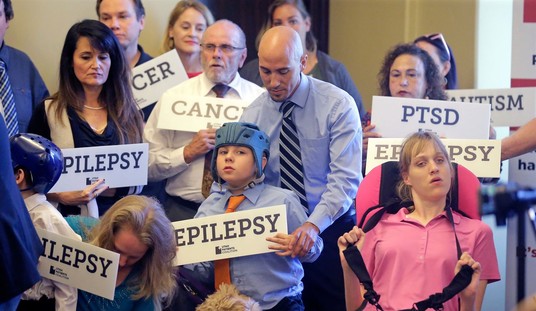New York’s controversial concealed carry law is extremely problematic. It was such a problem that a recent ruling gutted a number of provisions in the law, including a requirement that people give officials access to their social media accounts.
It’s unsurprising that some of these measures were struck down, but not everything that should have been killed by the ruling actually was.
An op-ed at Buffalo News takes some serious issue with how the judges handled things.
A panel of federal judges recently struck down key parts of the state’s misnamed Concealed Carry Improvement Act, thus giving these law-abiding gun owners some of their constitutional rights back.
Unfortunately, though, in upholding other sections of the draconian law, the Second Circuit Court of Appeals split a baby that never should have been birthed in the first place.
Still, if you’re a gun owner in New York, where Democrats control all three branches of executive and legislative power, you take your victories where you can get them.
This one comes in the Second Circuit’s ruling striking down part of the law prohibiting concealed-carry in so-called “restricted” places open to the public. That catch-all provision would have banned permit holders from carrying their weapons anywhere in the state without the expressed consent of property owners, turning on its head the idea of a constitutional right actually guaranteeing the right to do something.
The three-judge panel also knocked down a ban on bringing guns into houses of worship.
On the other hand, the court upheld prohibitions on carrying in so-called “sensitive” locations such as government buildings, schools, theaters, parks and other places in a list too long to enumerate here but which includes practically anywhere people might congregate. The law, and the Second Circuit’s concurrence, means that only criminals will be able to carry guns in such places.
This split-the-baby approach could also be seen in other aspects of the ruling. For instance, it struck down a requirement that people applying for a permit give licensing officers access to their social media posts, including pseudonyms. The judges said such overreach violates Second Amendment rights while also presenting “serious First Amendment concerns” because “it is uncontroversial that the First Amendment protects the right to speak anonymously.”
Yet the judges upheld the law’s requirement that applicants be of “good moral character.” While a lower court judge had struck down that provision as unconstitutionally vague, the appeals court judges deemed it a “proxy for dangerousness.”
Absolutely none of what author Rod Watson is saying here is wrong.
What is wrong, however, is the appeals judges ruling that “good moral character” is a proxy for “dangerousness.” It might serve as such to some degree if officials were to limit it as such, but there’s absolutely no requirement in the law to use it that way.
Keep in mind that there are people who think just wanting to own a gun shows a lack of good moral character. That makes this a huge problem because there’s no way someone won’t decide a person can’t get a carry permit because of some difference of opinion that has nothing to do with how much of a risk someone is.
And the off-limits places basically make it virtually impossible to carry in a lot of locations. Sure, they struck down the worst of it–declaring everywhere off-limits unless the property owner expressly allows it–but considering the rest of the list, it’s not much better.
Watson uses the metaphor of King Solomon suggesting cutting a baby in half when two women claim to be the mother here and it’s pretty apt, in my opinion. In so many ways, this was the result of judges somehow trying to carve out the worst excesses of the law without actually upholding the principles laid out in Bruen.
It’s an abortion of a ruling and we all know it. Worse, I’m pretty sure the appeals court judges know it, too.
About the only good thing we’re likely to see is that this will work its way up to the Supreme Court where we may see the justices clarify just how much of this is absolute nonsense.







